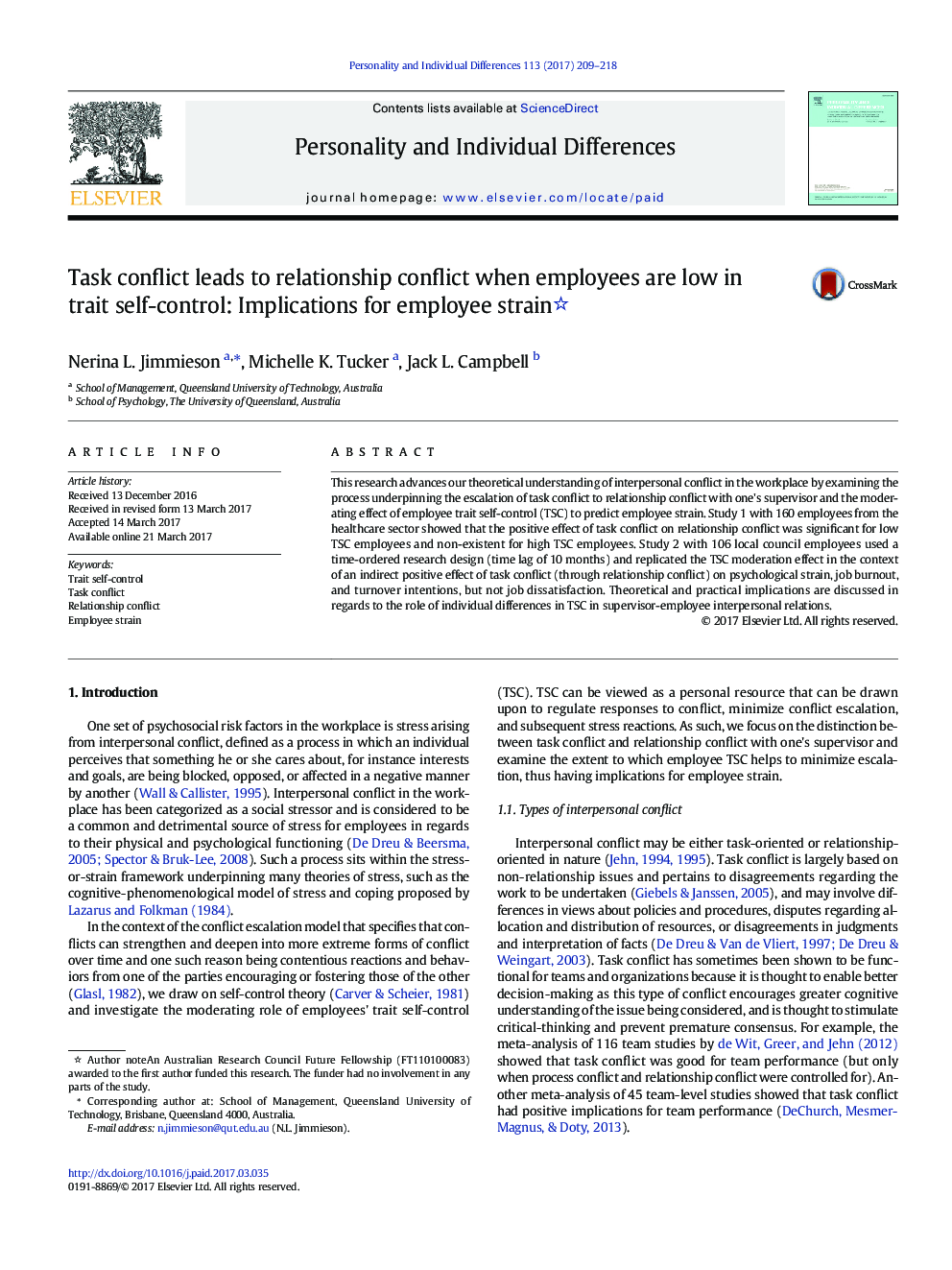| Article ID | Journal | Published Year | Pages | File Type |
|---|---|---|---|---|
| 5035782 | Personality and Individual Differences | 2017 | 10 Pages |
â¢Explored trait self-control (TSC) as a moderator of workplace conflict escalationâ¢Task to relationship conflict escalation occurred for low TSC employees.â¢Task to relationship conflict escalation did not happen for high TSC employees.â¢Conflict escalation had subsequent implications for employee strain.
This research advances our theoretical understanding of interpersonal conflict in the workplace by examining the process underpinning the escalation of task conflict to relationship conflict with one's supervisor and the moderating effect of employee trait self-control (TSC) to predict employee strain. Study 1 with 160 employees from the healthcare sector showed that the positive effect of task conflict on relationship conflict was significant for low TSC employees and non-existent for high TSC employees. Study 2 with 106 local council employees used a time-ordered research design (time lag of 10Â months) and replicated the TSC moderation effect in the context of an indirect positive effect of task conflict (through relationship conflict) on psychological strain, job burnout, and turnover intentions, but not job dissatisfaction. Theoretical and practical implications are discussed in regards to the role of individual differences in TSC in supervisor-employee interpersonal relations.
